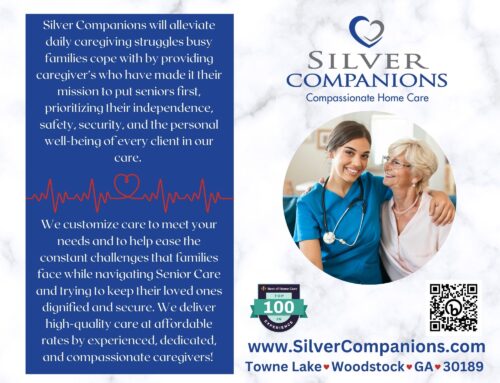ADD: Not Just for Kids

ADD and ADHD have pretty much always been thought to be disorders that affect kids. While the majority of those affected are kids (just over 9% have been diagnosed with ADHD), about half of that number of adults have also been diagnosed (just under 4.5%). This appears to be partly due to the perception that ADD and ADHD affect children who eventually grow out of it.

With that said, according to a study reported by Winston Chung, MD, MS (and several others), ADHD diagnoses among adults are growing four times faster than are ADHD diagnoses among children in the United States. The prevalence of ADHD among adults increased by 123%, while in children aged 5 to 11, the diagnosis rate rose just 25% in the same period.
Just to be clear, for the purpose of this post, we are talking about both ADHD and ADD, and will use the two terms interchangeably, as it applies to the information being relayed. We realize there are elements that differentiate the two, primarily that the ‘H’ in ADHD stands for Hyperactivity – which is less common among adults than children, but we are focusing more on the fact that these disorders are present, and more prevalent than people may realize, versus distinguishing the differences and similarities between the two disorders. Also, one of the things we will be discussing is that ADD can be mistaken for symptoms of dementia or Alzheimer’s (a type of dementia), and how to avoid that misinterpretation.
Another reason that older adults are not more widely diagnosed, is that It tends to be more difficult to diagnose. While there are screening procedures in place to diagnose kids, adolescents and adults, there really hasn’t been a reliable screening developed yet for older adults. It seems, at this point anyway, that the best way to diagnose them is to note how they function in their daily lives. Currently, there’s no training for professionals for diagnosing and treating what some refer to as “senior ADD,” despite the fact that memory clinics are reporting more older patients coming in asking to be tested for dementia or mild cognitive impairment, when what they really have is undiagnosed ADD.
Let’s look at some of the symptoms that person with ADD might exhibit:
- Continuously overlooking details or making careless mistakes
- Seemingly inattentive or distracted when being spoken to
- Easy for them to lose focus or get sidetracked
- Consistent problems with organization
- Frequently misplacing or losing things
- Easily distracted by things that are irrelevant to their primary task
- Tend to be or seem absent-minded or forgetful
- Unable to sit still for long periods of time
What is the relationship of ADD to dementia and mild cognitive impairment (MCI)? The answer is still unclear. As you can see from the above list, many of the symptoms of ADD overlap with those of a form of dementia or MCI. It has been found that ADD may increase the risk of MCI or dementia years later because of lifestyle issues related to ADHD that affect brain health.
There are interesting parallels between older adults with ADD and younger adults with ADD. Just as young adults (older teens) with ADHD go away to school or move out and, subsequently, are no longer under the care of their parents, retirees may also find themselves in new living situations and may have lost the structure of a job or a routine. Both groups are at risk for developing poor sleep patterns and poor nutritional habits and benefit from finding or restoring structure to their lives.
ADD affects older women differently. Women with ADD can start to see changes in their mid-40s during perimenopause and even bigger changes around age 50. Many women report that they’ve “become dumb” at this age when hormone levels decline, and stimulant medication can feel ineffective if estrogen levels are low. It is suggested that female patients with ADD should consult with a physician who specializes in integrative medicine about hormone levels and hormone replacement.
Judith Berck, a writer for the NY Times, recounted the following example of an older patient who was exhibiting signs of what they thought might be the onset of Alzheimer’s. Instead, however, she was diagnosed with ADHD.
A 73-year-old widow went to see Dr. David Goodman, an assistant professor in the psychiatry and behavioral sciences department at Johns Hopkins School of Medicine, after her daughter had urged her to “see somebody” for her increasing forgetfulness. She was often losing her pocketbook and keys and had trouble following conversations, and 15 minutes later couldn’t remember much of what was said.
He didn’t think she had early Alzheimer’s disease. The woman’s daughter and granddaughter had both been given a diagnosis of ADHD a few years earlier, and Dr. Goodman, who is also the director of a private adult ADHD clinical and research center outside of Baltimore, asked about her school days as a teenager.
“She told me she would doodle because she couldn’t pay attention to the teacher, and wouldn’t know what was going on. The teacher would move her to the front of the class, ” Dr. Goodman said,
After interviewing her extensively, noting the presence of patterns of impairment that spanned the decades, Dr. Goodman diagnosed ADHD. He prescribed Vyvanse, a short-acting stimulant of the central nervous system.
A few weeks later, the difference was remarkable. “She said: ‘I’m surprised, because I’m not misplacing my keys now, and I can remember things better. My mind isn’t wandering off, and I can stay in a conversation. I can do something until I finish it,’ ” Dr. Goodman said.
We bring all of this information to you to raise your awareness on this topic. There are a lot of articles, reports, news stories, etc. talking about the rise in Alzheimer’s and dementia in older adults. While we definitely are not disputing that, it is important to be aware of all of the facts, and not simply take the first diagnosis at face value. The symptoms, as you see above, between dementia and ADD can be quite similar, and since few medical practitioners have experience with diagnosing ADD, especially in older patients, it may simply not be a possibility they are considering.
As with any diagnosis of a medical condition, it is always recommended to get more than one opinion, and this is no different. As you seek the best solution for you and your loved ones, be sure your/their medical professional is looking at all possibilities.
If you or a loved one are experiencing any of these symptoms, or simply struggling with everyday tasks while living alone, call us ((678) 494-8129). We are more than happy to confidentially discuss your specific situation and needs, and suggest some options that fit both your needs and your budget. You can also reach out via email at info@SilverCompanions.com or directly through this website through the Contact Us page. As always, the health and well-being of you and your loved ones are our number one priority. There is never any obligation or commitment required for a consultation call, and never any high pressure (or any pressure, for that matter) sales tactics. We want to help, and be your resource, so you can make informed decisions that serve the needs of your loved ones.






This article offers very interesting information about ADHD in adults and seniors. Thank you for posting this.